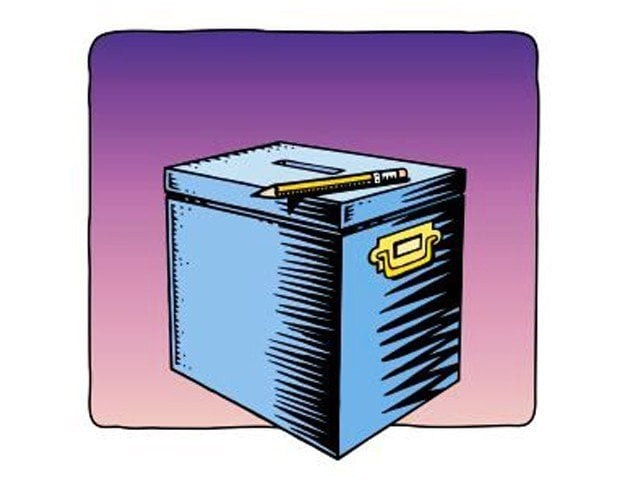Ethnic opposition begin talks to field presidential candidate
In a show of rare unity, Tajik, Uzbek, and Hazara leaders meet in Mazar-e-Sharif to end Pukhtun dominance.

Despite being the majority, the Pukhtuns stand divided for the next elections and their leaders have no policy on the issue as yet. PHOTO: FILE
The ethnic opposition in Afghanistan has commenced consultations on choosing a presidential candidate – a serious threat for the Pukhtuns if they fail to come up with a candidate of their own.
Despite being the majority, the Pukhtuns stand divided for the next elections and their leaders have no policy on the issue as yet.
While presidential elections are scheduled for next year, senior Tajik, Uzbek and Hazara leaders recently met in Mazar-e-Sharif in a rare show of unity to form a platform and decide on potential candidates.
The influential governor of Balkh province, Atta Mohammad Noor hinted at fielding a candidate in an attempt to end Pukhtun domination and leadership. Although no announcement has been made, opposition leaders focused their speeches on selecting a unanimous candidate.
Those who attended the meeting included Zia Massoud, the head of the National Front and brother of slain Northern Alliance leader Ahmed Shah Massoud, the former Uzbek warlord and Junbish-e-Milli Islami chief General Abdul Rashid Dostum, Hizb-e-Wahdat (HeW) chief Haji Mohammad Mohaqiq, and former Afghan intelligence chief Amrullah Saleh.
The meeting is being seen as a move to present Noor as a possible candidate. Noor was appointed the Governor of Balkh in 2004.
Mehsud told the meeting that he would support Noor if other leaders agreed on his nomination. The HeW chief also said that the meeting is a message to the Afghan people that the opposition will remain united on a single platform for the presidential elections. He termed this as crucial for the political future of Afghanistan.
Opposition leaders said they will also approach other minority leaders, including Ismail Khan, a former Jihadi and an incumbent minister in the Karzai government, to make him part of the future plan. Ismail, a Tajik, could further strengthen the opposition in western Afghanistan.
Mehsud said he cannot accept the domination of one nation, a veiled reference to the Pakhtuns, according to a section of the Afghan media and American radio channel Azadi.
Political pundits say opposition leaders may also get some support in Pukhtun-majority areas like Kunar, Nangarhar and Paktia, which borders Pakistan.
Afghan President Hamid Karzai, who is constitutionally ineligible for a third term, will field his own man to keep his influence strong in the future government. Mahmud Karzai, the president’s brother, expressed his desire to play a prominent role in Afghan politics and surrendered his American citizenship.
Mahmud said that if their brother Qayyum runs for the presidency, he will support him.
The Taliban factor
The Afghan Taliban opposes elections and considers it un-Islamic. They boycotted the previous two presidential elections and have not made any statements about changing their stance about democracy.
Their boycott of the presidential election next year will certainly have an impact on Pakhtun voters, especially in the south and east. The role and support of the United States will also be crucial in clinching the presidency.
Published in The Express Tribune, February 2nd, 2013.



















COMMENTS
Comments are moderated and generally will be posted if they are on-topic and not abusive.
For more information, please see our Comments FAQ